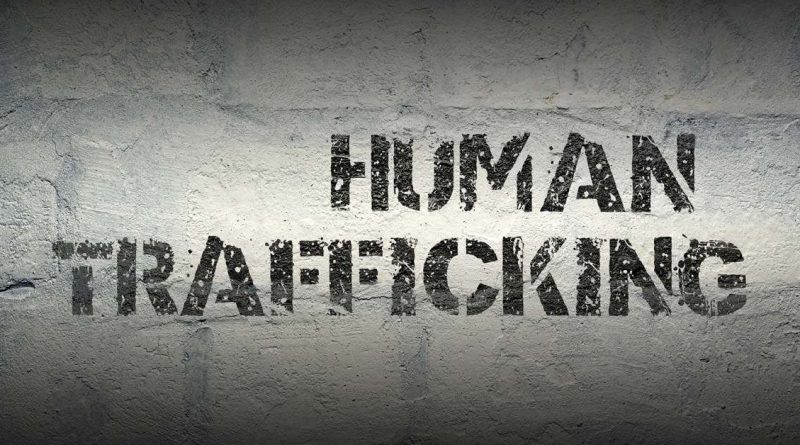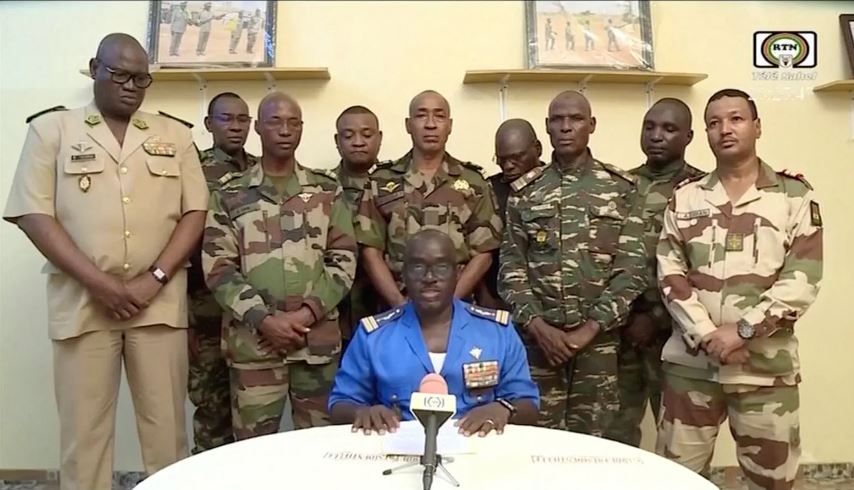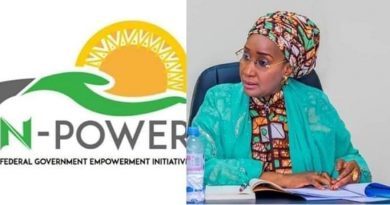FG, stakeholders’ chart ways to change narrative
By Gabriel Ewepu
Nigeria is a country with one of the largest human population in the world, which it is currently the largest in Africa, and by implication, the human resource is astronomically high, which the young population is enormous and has become vulnerable to human traffickers over the years.
This challenge of human trafficking has been a worrisome issue that has taken different dimensions with sophisticated methods invented and initiated by syndicates within and abroad, who have succeeded in brainwashing young and desperate persons including their families through close relatives and friends who take advantage over their poverty situation and compare them with their mates who are so-called successful after leaving the shores of Nigeria.
These factors have prompted the unmanageable gullibility of young and energetic persons and their families to easily fall prey to the carrot dangled before them. The kingpins in this illicit business of human trafficking have succeeded in luring their unsuspecting victims in huge numbers into modern-day slavery and dehumanizing conditions, especially to live and work abroad.
This was part of concerns raised by the Minister of Women Affairs and Social Development, Dame Pauline Tallen, to call on Civil Society Organisations, CSOs, and well-meaning Nigerians to join in the fight against the growing monster of human trafficking because government alone and few organisations cannot stop or reduce the trend.
Tallen who lamented the huge number of trafficked persons annually from Nigeria alone made the call during these years 2020 World Day Against Trafficking in Person, whose theme focused on the first responders to human trafficking, which was organised by the United Nations Office on Drugs and Crime, UNODC, said the vulnerability of young people trafficked has become a huge concern for the Buhari-led administration and efforts are made to tackle the inhuman business.
She also acknowledged that charting the path forward traffickers aim at luring people from poor families so it has become pertinent for empowerment and education of the poor and vulnerable population.
The Minister addressed participants from Nigeria, South Africa, Denmark, Finland, and the United Kingdom in a webinar platform to challenge everyone to effectively get involved and play their role by consolidating on government efforts.
The Wenibar event was organized by Secure D Future International Initiative (SDF), Media Coalition & Awareness to Halt Trafficking (MeCAHT), Elpida Finland, and Holistic Resilience Generation (HRG) South Africa with the theme, ‘Building the Mental Health of Survivor Leaders During and Post COVID-19’.
Apart from the Minister other key speakers were Hajia Mariam Adoke, JAMB Board member, Nigeria; Ms. Nicky Ellis, Managing Director of Training Against Slavery Collaboration (TASC), South Africa; Dr. Charlie Lamento, CEO, Global Hope Network International (GNI) and United Nations Chief Representative ( Geneva- New York); and Dr. Hauwa Mainoma, Director, Gender Studies, Nassarawa State University, Nigeria.
The webinar also had goodwill messages from the former resident Ambassador of Nigeria to Poland with concurrent accreditation to the Czech Republic, Her Excellency, Asalina Mamuno; Chief Executive Officer, CEO, Hope to Heal Foundation South Africa, Ms. Seema Naidoo, and CEO, EXIST, Denmark, Ms. Karin Kjaergaard.
The Minister who was emotionally feasible decried the disturbing the plight of trafficked victims, particularly young women maintained that the Buhari administration is working tirelessly to curb all forms of gender-based violence against women and improve their status.
According to her government will continue to enact policies that favour women and girls through NAPTIP and the administration will continue to be at the forefront in the global fight against trafficking in and from Nigeria.
The Minister also charged Nigerians to see it as a collective responsibility to play their part effectively as citizens by exposing perpetrators behind the heinous crime to humanity including neighbours and people they have as friends.
She (Tallen) did not mince words by saying anyone who spots a trafficking case should quickly alert the Ministry of Women Affairs and Social Development, NAPTIP or relevant NGOs
She further stated that education helps children and parents know their rights in order to identify traffickers.
She said, “We must all work hard to ensure the safety of our children as we have a responsibility to dispel ignorance by creating more awareness.”
On a passionate note as mother and grandmother, the Minister in her conclusion made a clarion call on more NGOs to join hands with the Ministry of Women Affairs and Social Development to play a collective role by supporting the trafficked victims that have returned back home as they have suffered unimaginable abuse and exploitation, hence they need love and support of Nigerians to get rehabilitated and reintegrated back to society.
Meanwhile, she commended other speakers noting that the topic of discussion is very dear to her heart as it has to do with helping women and children who have been subjected to egregious crime. She further commended the DG of NAPTIP, WOTCLEF, and all counter human trafficking organizations.
She appreciated organizers of the event and called all well-meaning citizens locally and internationally to join the fight against human trafficking and every form of gender-based violence especially in this time that the COVID -19 pandemic has trapped most Nigerian victims across international borders.
The Country Director, Secure D Future International Initiative, SDF, Nigeria, Chide Omali, also an advocacy visit to the palace of Etsu Karo in New Karo Local Government Area of Nasarawa State, highlighted some of the implications of human trafficking activities in the country, and how it has negatively impacted individuals, families, communities, and countries.
Omali who is passionate about the future of young people said that they are mostly the victims of traffickers, therefore called on government, organizations, and communities to do more by synergizing to curtail the dangerous trend, which as a result increased other crimes like rape, ritual killing, modern-day slavery, sexually transmitted diseases, drugs, robbery, illiteracy, migration, poor productivity, and deaths.
She also pointed out that with the current pandemic and post-COVID-19 periods most human traffickers might want to take advantage of the untold hardship people are presently grappling with the fake job and business offers, traveling and others, as they lie in wait to explore the pandemic opportunity to exploit vulnerable persons.
She said: “Looking at what is going on in the world today, there is a lot of breakdown in normal. We know that the situation if not taken care of will lead to a worse pandemic.
“That is why we put this together for people to understand that this is just for some time, that there is life after it, so it has to be a positive acceptance of what is going on today.
“And of course looking at trafficking those that are not able to make anything during this period and then after the pandemic people come up with all sorts of stories to go abroad and they get engaged with negative vices and they will be exposed to all sorts of inhuman actions.”
Also speaking was the Director, Gender Studies, Nasarawa State University, Keffi, Dr. Hauwa Mainoma, which Mainoma said there is need for government to move fast to plug holes like idleness, unemployment and other vices before, during and after the Post COVID-19 effects in Nigeria that might lead to increased human trafficking activities.
She expressed concern over the loss of jobs, livelihood, and businesses of Nigerians during the outbreak and lockdown period of the pandemic, which possibly more jobs and businesses might be lost.
However, she (Mainoma) advised said that the way to address and nip these troubling issues at the bud, and that would be through effective and holistic public awareness creation and sensitization programmes including palliatives led by the government, NGOs, Community Based Organisatons, CSOs, and relevant government agencies.
“I am calling on non-governmental organisations and also the government to try by all means to hammer on the effect of this pandemic because it will come in any direction.
“It is really paramount at this moment for them to educate the youths on how to sustain mental health, how they will be able to manage it in such a way that they can withstand proposals from traffickers. It will really help the youths and also any other individual in the country.”
The level at which human trafficking flourished in Nigeria it really a big issue that has further destroyed the image and reputation of the country in the comity of nations because Nigeria has witnessed an influx of deported victims of human trafficking, human smuggling and irregular migration in the recent years.
Since 2017, the Edo State government claims to have received and reintegrated 4,943 returnees who were stuck in Libya, with the dream of making it to Europe by sea.
According to the National Agency for the Prohibition of Trafficking in Persons (NAPTIP) 20,000 trafficked Nigerian women were identified in Mali in 2019 alone. According to Mohammed Abdulkadir Maccido, the Charge d’Affaires, the Nigerian embassy in Ivory Coast repatriates 20 women monthly.
Today in the midst of the COVID -19 pandemic, this sort of return to Nigeria is no longer facile. Nigerian trafficked women and children are stuck awaiting repatriation in transit or destination countries due to restrictions induced by COVID.
A forthcoming OSCE Office for Democratic Institutions and Human Rights and U.N. Women survey reveals that almost 70 per cent of trafficking survivors from 35 countries say COVID-19 has negatively affected their financial well being, while more than two-thirds say that their mental health is suffering as government-imposed lockdowns trigger memories of the last time their freedoms were taken away.
More than half of the survey participants worried that the outbreak would increase rates of human trafficking in the future, while 43% believed women and girls would be the most at risk in the coming months.
According to a presentation of findings of the ODIHR and UN Women Policy Survey reports and recommendations ‘Addressing Emerging Human Trafficking Trends and Consequences of the COVID-19 Pandemic’, new trends such as online trading and exploitation in women and children has spiked since the pandemic. The report fears that most anti-trafficking organizations will shut down by 2021 if not supported with enough funds to enable them to stem this new emerging trend.
The number of women who are trafficked from Nigeria continues to grow during the COVID-19 pandemic—even as local governments curtail legal movement. But despite the restrictions, international law enforcement agents and anti-trafficking organizations say trafficking networks remain active, as traffickers bribe their way across borders in order to move freely.
It will be recalled that the Minister of Foreign Affairs, Geoffrey Onyeama, in May 2020, said 50 trafficked Nigerian women were rescued from Lebanon and returned home, Nigeria’s foreign minister says, while other 50 women have recently been taken to safety from a crammed dingy room in Lebanon seeking assistance to return to Nigeria.
The UN agrees that thousands of women and girls from Nigeria and other African countries are trafficked every year. They are often lured away with promises of jobs in Europe or Asia but usually end up being exploited as domestic maids or forced into prostitution.
Last year, an undercover BBC News Arabic investigation in Kuwait found that domestic workers were being illegally bought and sold online in a booming black market.
Other key points raised by the speaker at the webinar were: The need to create more awareness about human trafficking among vulnerable groups such as university students; The role of governments, individuals and the family unit in the reintegration of survivors; The importance of policymaking in ending human trafficking; and the difference that professional mental health workers make in helping victims become survivors.
Vanguard
Related
Source link




